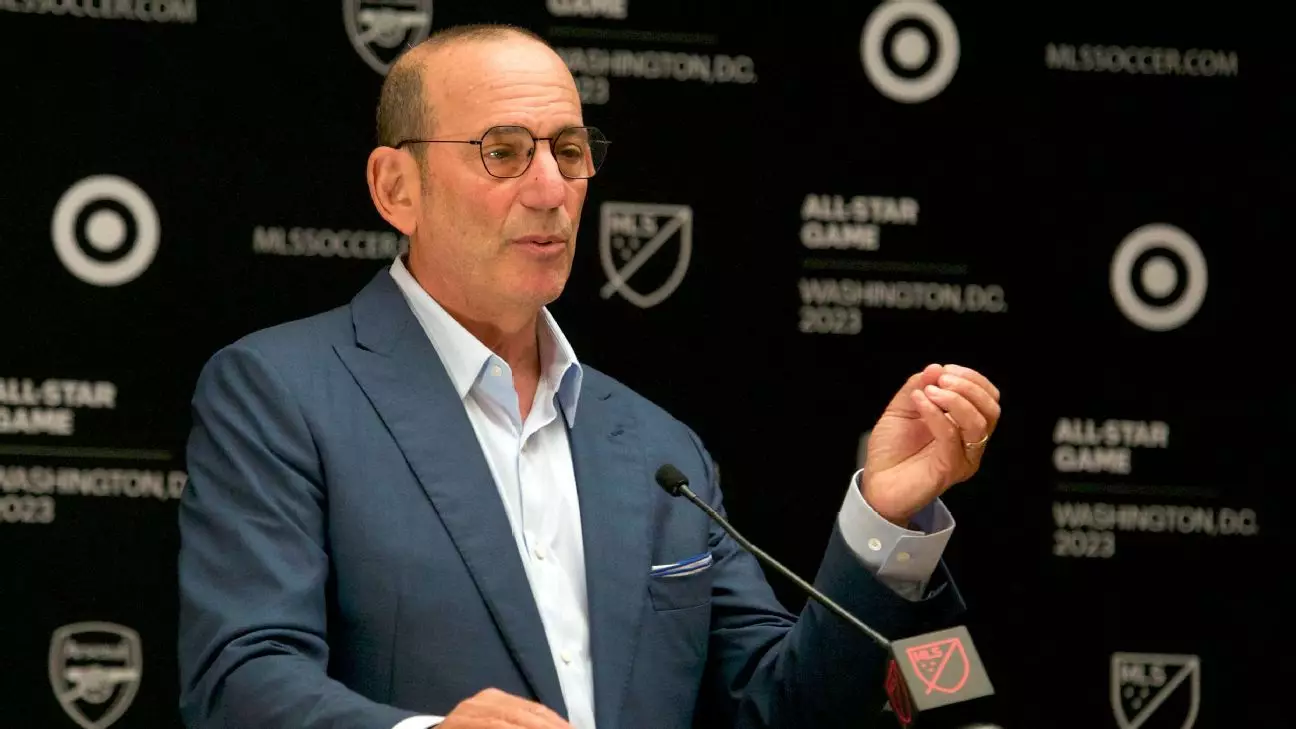The world of professional football is on the brink of significant transformation, instigated by mounting concerns surrounding the sport’s congested calendar. As leaders from various football associations and leagues converge to discuss these pressing issues, the potential for an optimized schedule becomes a topic of crucial importance. The recent antitrust lawsuit brought to light in Brussels serves as a catalyst, prompting dialogues that could reshape the way football is organized globally.
In recent statements, Major League Soccer (MLS) President Don Garber voiced his concerns regarding the ramifications of FIFA’s revamped Club World Cup, which is set to take place in 2025 with a larger roster of participating teams. Garber’s apprehensions resonate with broader criticism from players and football organizations alike. The growing frequency of matches throughout the year is becoming a significant strain on players, many of whom have voiced concerns about injuries and burnout. These issues are exacerbated by a seemingly endless cycle of tournaments and league fixtures, making it clear that without a thoughtful reevaluation of the calendar, the sport risks jeopardizing the well-being of its most valuable assets: the players.
Moreover, LaLiga President Javier Tebas and other European stakeholders have expressed outright opposition to the introduction of the expanded Club World Cup. The hesitance to embrace this tournament underscores a fear of oversaturation in an already crowded football calendar. The multi-layered competitions, which include domestic leagues, continental tournaments, and international friendlies, create a perfect storm that could lead to diminishing returns for clubs, players, and fans alike.
Don Garber has articulated a call for engagement among the various entities within the football ecosystem. The hope is that the ongoing lawsuits could serve as a wake-up call, pushing stakeholders to the negotiating table to harmonize their efforts. The primary goal should be to establish a calendar that maintains the competitive integrity of football while respecting the physical demands placed on players. An approach grounded in data and strategic planning is vital for achieving this balance.
The prospect of the lawsuit sparking meaningful changes offers a glimmer of optimism. With European leagues, players’ unions, and organizations such as the MLS now intertwined in dialogues over fixture congestion, the potential exists for coordinated efforts to address and refine the international calendar. Furthermore, the possibility of a collaborative framework could lead to innovative solutions that better serve both the interests of the leagues and the welfare of the players.
The urgency of this conversation is echoed by players themselves. Figures like Gerard Piqué have underscored the need for a reevaluation of the number of games played each season. The prospect of reducing league teams or rethinking tournament structures could fundamentally reshape how football is approached globally. Piqué’s suggestion of reducing the number of teams in leagues to optimize scheduling reflects a growing consensus that sometimes less is more, prioritizing the quality of the experience over sheer quantity.
Furthermore, the challenge of aligning multiple competitions, such as the Club World Cup and domestic leagues, requires careful consideration. Events overlapping with existing tournaments can lead to player fatigue, diminished performance, and ultimately disengagement from fans. As these voices resound within the industry, it becomes increasingly clear that a concerted effort must be undertaken to systematically rework the football calendar.
As discussions around the future of the football calendar intensify, stakeholders will need to harness this moment as a foundational opportunity for reform. The congested fixture schedule has highlighted critical stress points within the sport that demand immediate attention. A collaborative approach that includes players, league representatives, and governing bodies is essential to crafting a sustainable and player-centric calendar.
While challenges abound, the potential for a reimagined football landscape exists. The ongoing dialogues following current legal disputes could lead to an era of collaboration, ensuring the sport can thrive without compromising the health and safety of its players. Football stands at a crossroads, and how stakeholders choose to navigate the issues related to fixture congestion will determine the future trajectory of the beautiful game.

